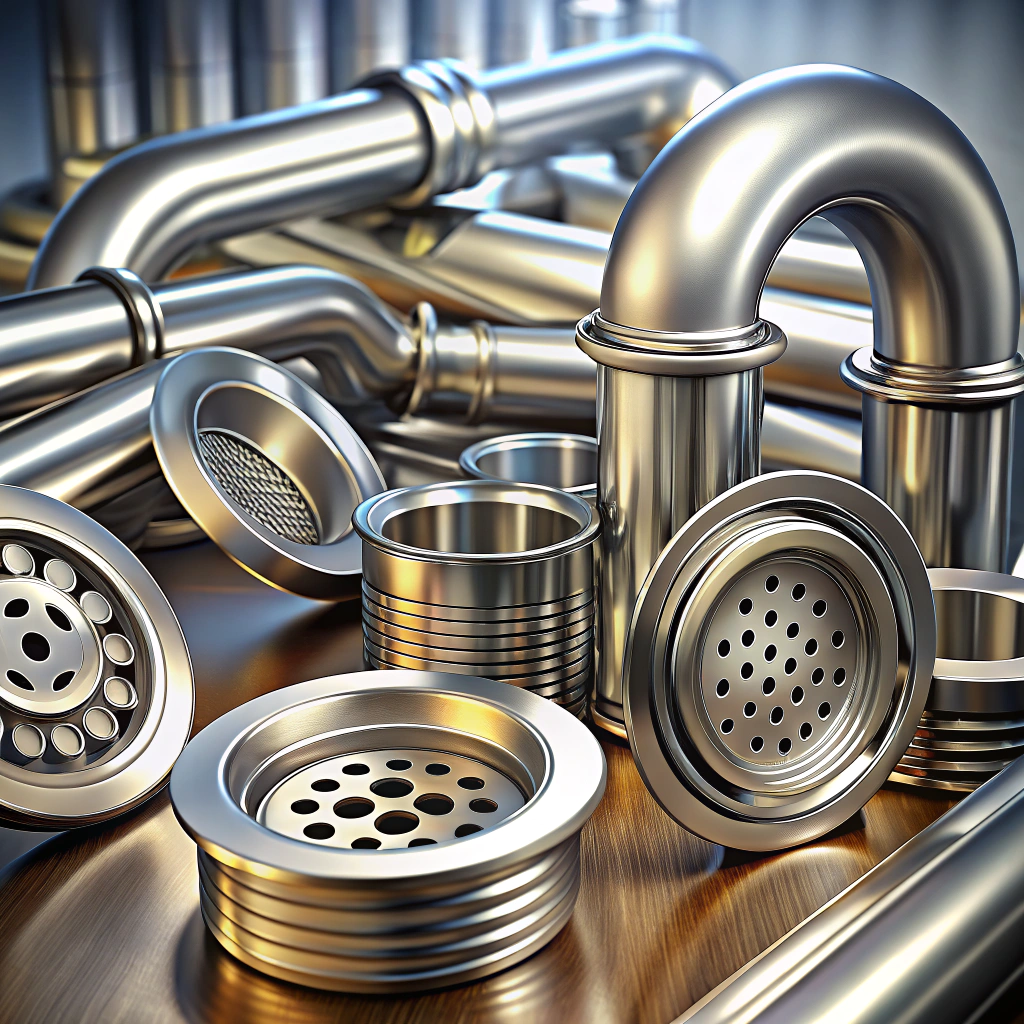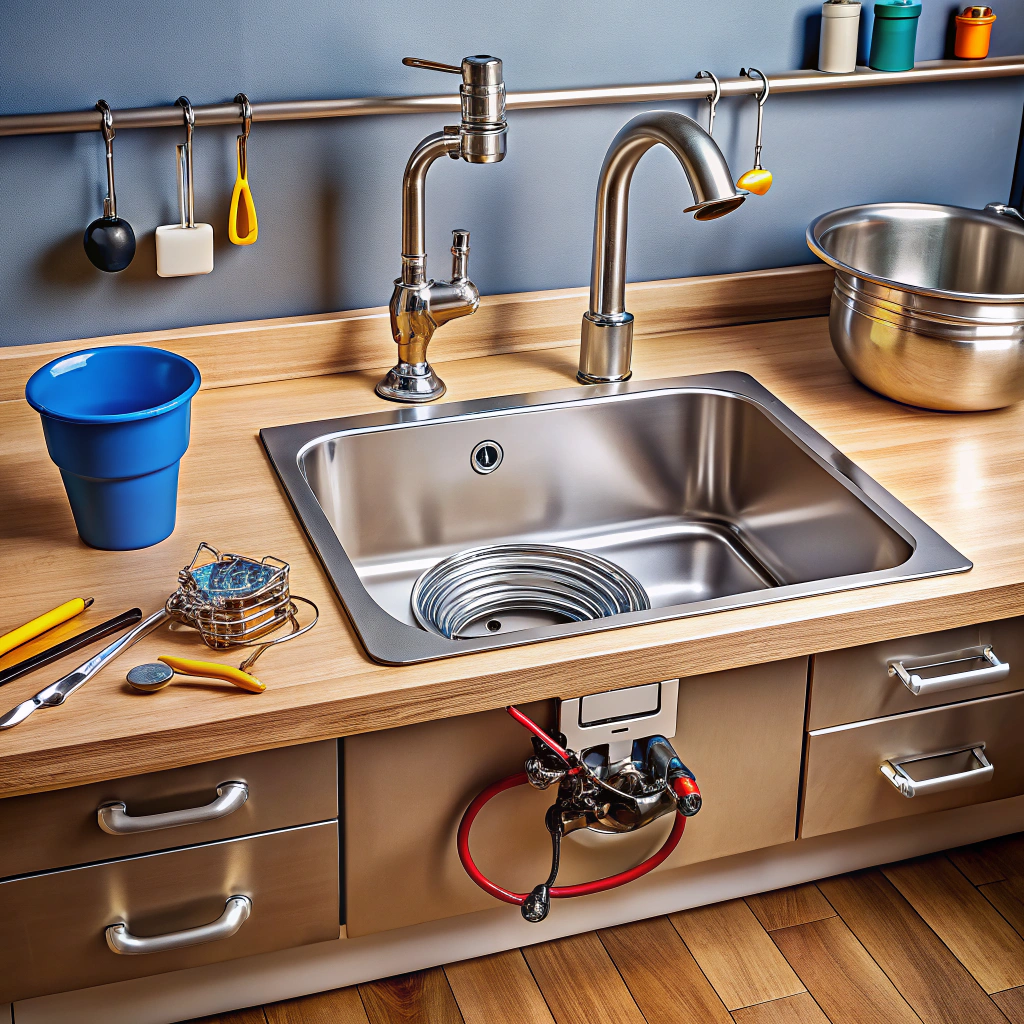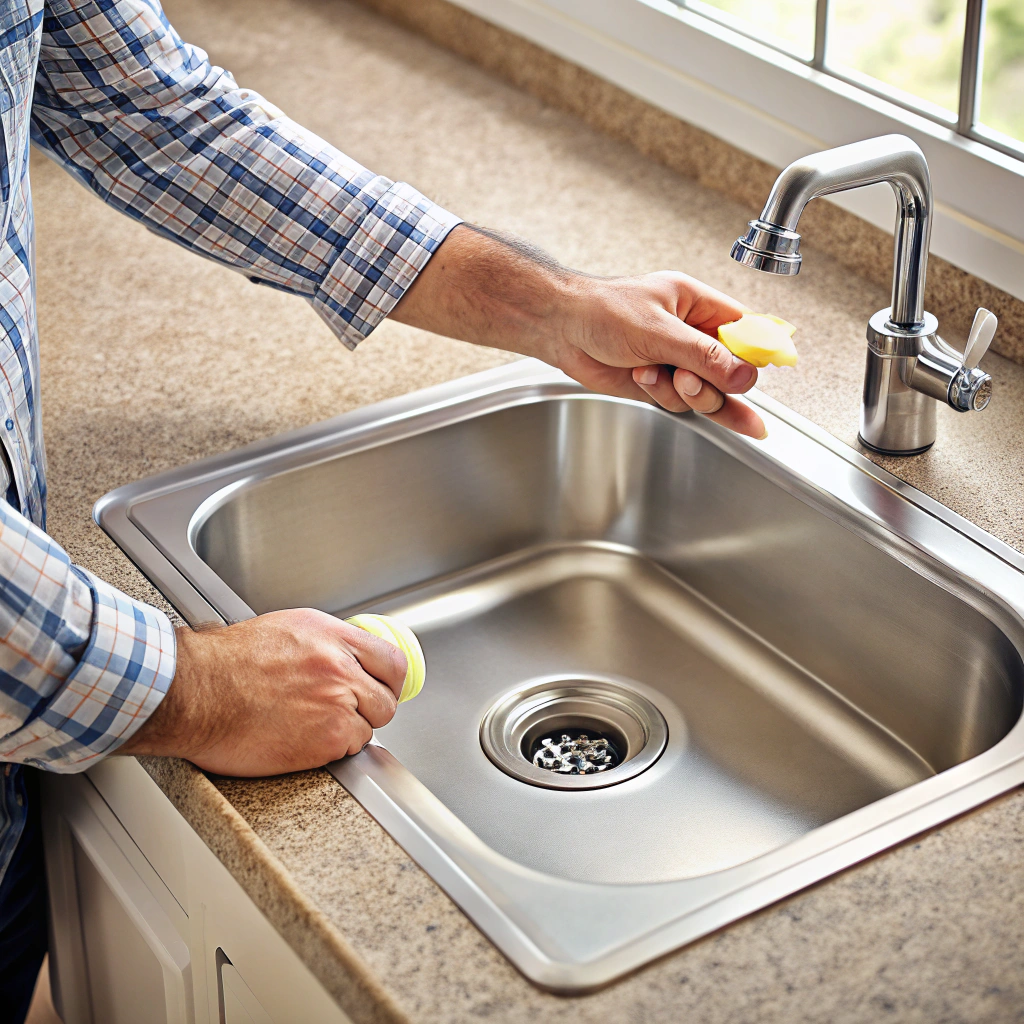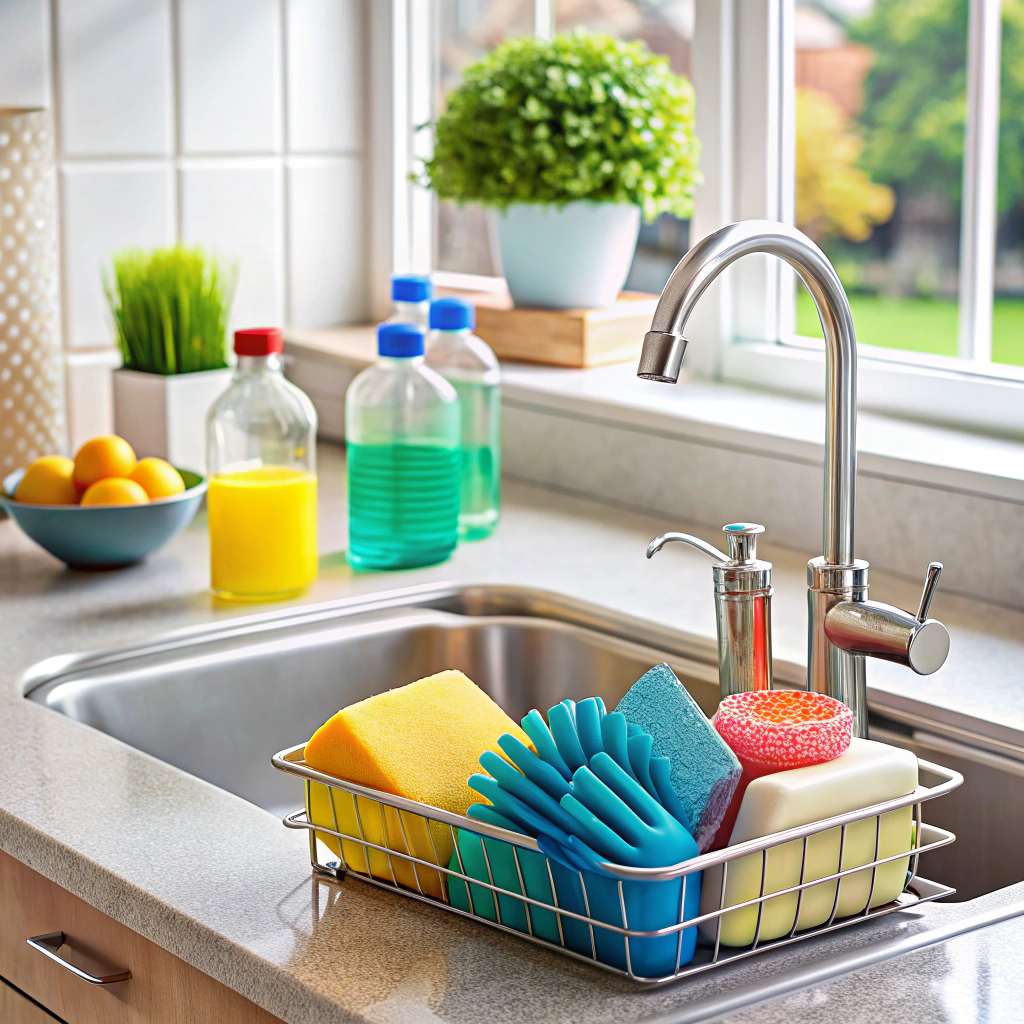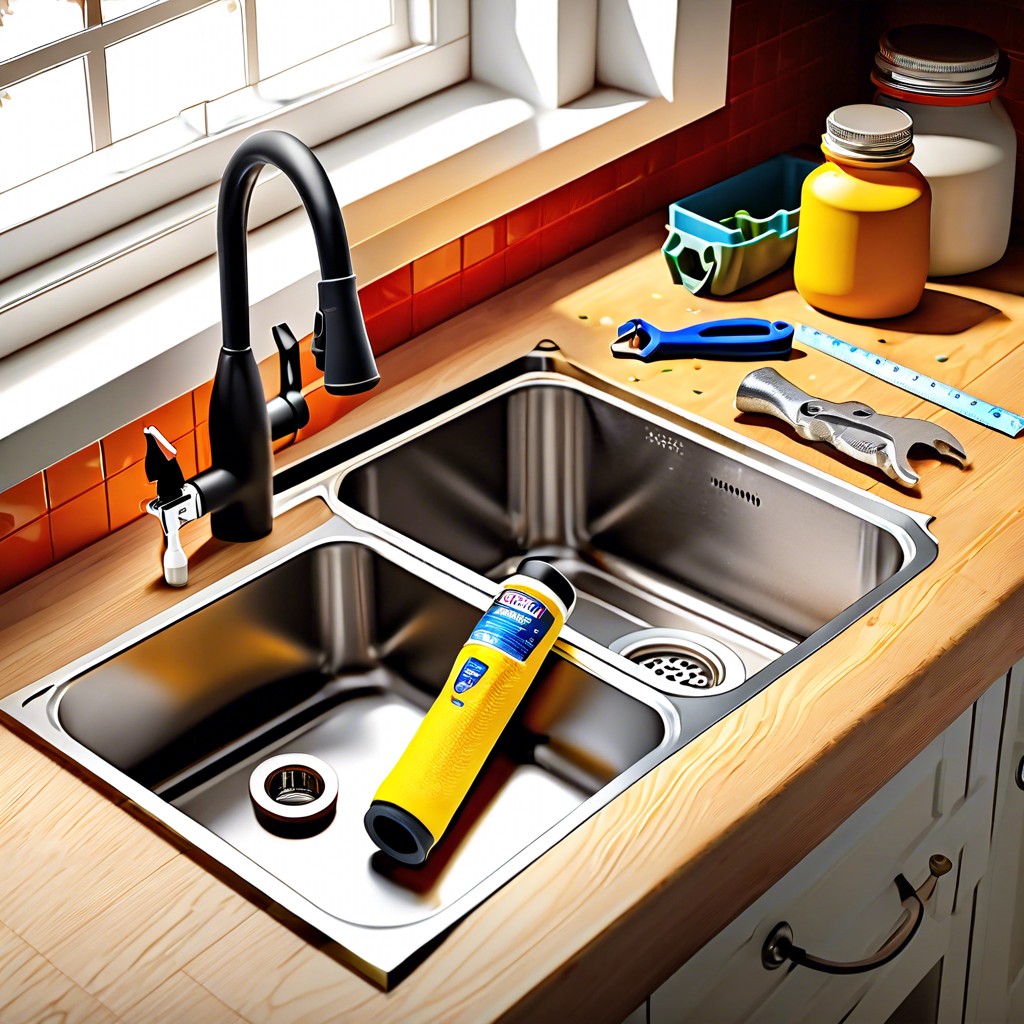Last updated on
Discover why your sink gurgles and learn how to fix it with simple solutions.
Key takeaways:
- Clogged drain causes gurgling sounds.
- Vent blockage leads to talking sinks.
- Faulty P-trap can cause gurgling noises.
- Regular maintenance prevents worsening issues.
- Gurgling sink is a warning sign, not to be ignored.
What's Inside
Causes of Gurgling Drain
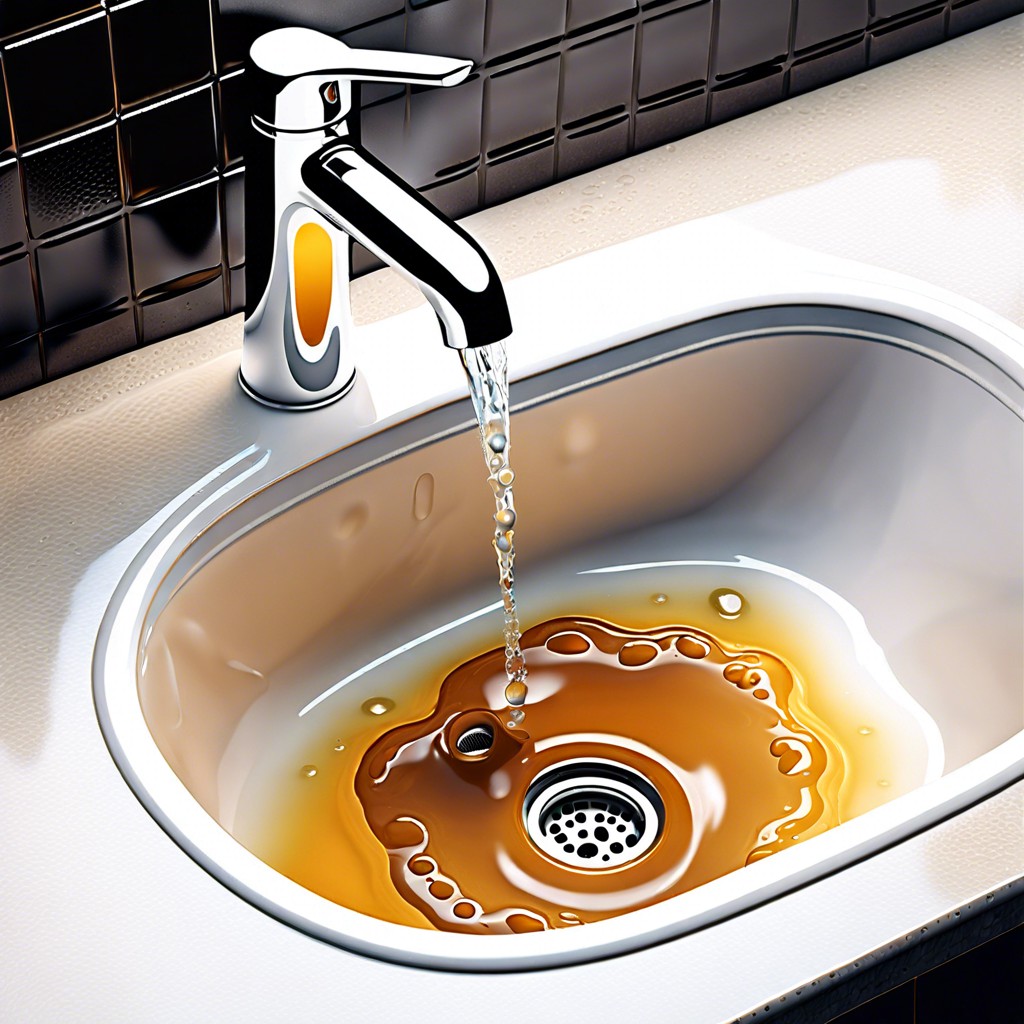
A common culprit behind that annoying gurgle is a clog forming somewhere in the line. It might be a buildup of hair, soap scum, or food debris slowing down the water flow, causing air bubbles to erupt audibly as they escape through the nearest exit: your sink.
Another potential cause could be a blockage in your drain vent. This pipe usually runs through the roof, allowing air pressure to equalize and facilitating smooth drainage. If it’s blocked by leaves, bird nests, or other debris, the disruption in airflow can lead to that peculiar gargling sound.
Lastly, check your P-trap, that U-shaped pipe under the sink. It should always hold a bit of water to create a seal against sewer gases entering your home. If it’s dry or incorrectly installed, not only can it cause a gurgle, it might also let in unwanted smells.
A Forming Clog
Hair, soap residue, and food particles often accumulate slowly in pipes leading to obstruction in water flow. This partial blockage can create pockets of air which, as water attempts to pass through, results in that distinctive gurgling sound emanating from your sink. Regularly clearing out debris using a plunger or a plumber’s snake can prevent these issues from escalating. For kitchen sinks, also consider installing a drain catcher to trap solid substances before they cause mischief down the line.
Drain Vent Blockage
A blocked vent can cause your sink to sound like it’s talking back to you. This happens because the air that should normally escape through the vent gets trapped, forcing its way through the water in your sink’s P-trap. Here’s a quick dive into the topic:
– **Location of Vents**: Typically, these vents are on the roof. They allow air into your plumbing system to regulate pressure as water flows through.
– **Signs of Blockage**: Besides gurgling, slow drainage and foul odors can mark a vent block issue.
– **Common Culprits**: Leaves, bird nests, or even snow can clog vents, disrupting the air balance.
Checking your vents requires a peek on your roof. If you’re not keen on heights, a call to a plumber might be your best bet. Remember, regular maintenance can prevent these issues from bubbling up.
Faulty P-Trap
The P-trap, that curved pipe under your sink, plays a key role by maintaining a small amount of water after each use, which blocks sewer gases from entering your home. When this crucial component isn’t functioning properly, the telltale sign is often a gurgling sound.
- Blockage: Daily debris and buildup can block the P-trap, restricting water flow and causing turbulent, gurgling noises.
- Dry Trap: If your sink hasn’t been used for a while, the water in the P-trap can evaporate, leading to the loss of the protective water seal and allowing gas to escape, which might cause gurgling.
- Incorrect Installation: A P-trap installed without the correct slope compromises its effectiveness, potentially leading to poor drainage and noise.
Regular checks and cleaning can prevent these issues. If you suspect installation errors, consulting a professional is wise. Always keep water flowing through less frequently used drains to avoid a dry trap.
Is a Gurgling Sink Dangerous?
While a gurgling sink might not scream urgent danger, it’s a signal that shouldn’t be ignored. This peculiar noise often indicates that air is trapped in your plumbing system, hinting at potential underlying issues that could worsen if not addressed.
Firstly, this noise could be a precursor to drainage problems. If left unchecked, what starts as a simple gurgle can lead to a complete blockage, possibly resulting in water backing up. This standing water can become a breeding ground for bacteria and mold, which could pose health risks over time.
Secondly, consistent gurgling might be pointing to a more systemic issue within your home’s ventilation or sewer system. If vents are blocked, for example, harmful sewer gases could find their way back into your home instead of being safely released outdoors.
In essence, while the gurgle itself is not an immediate danger, it’s a cautionary tale that your house’s plumbing might need some attention. Keeping an ear out for these sounds can save you from more severe problems down the road.
